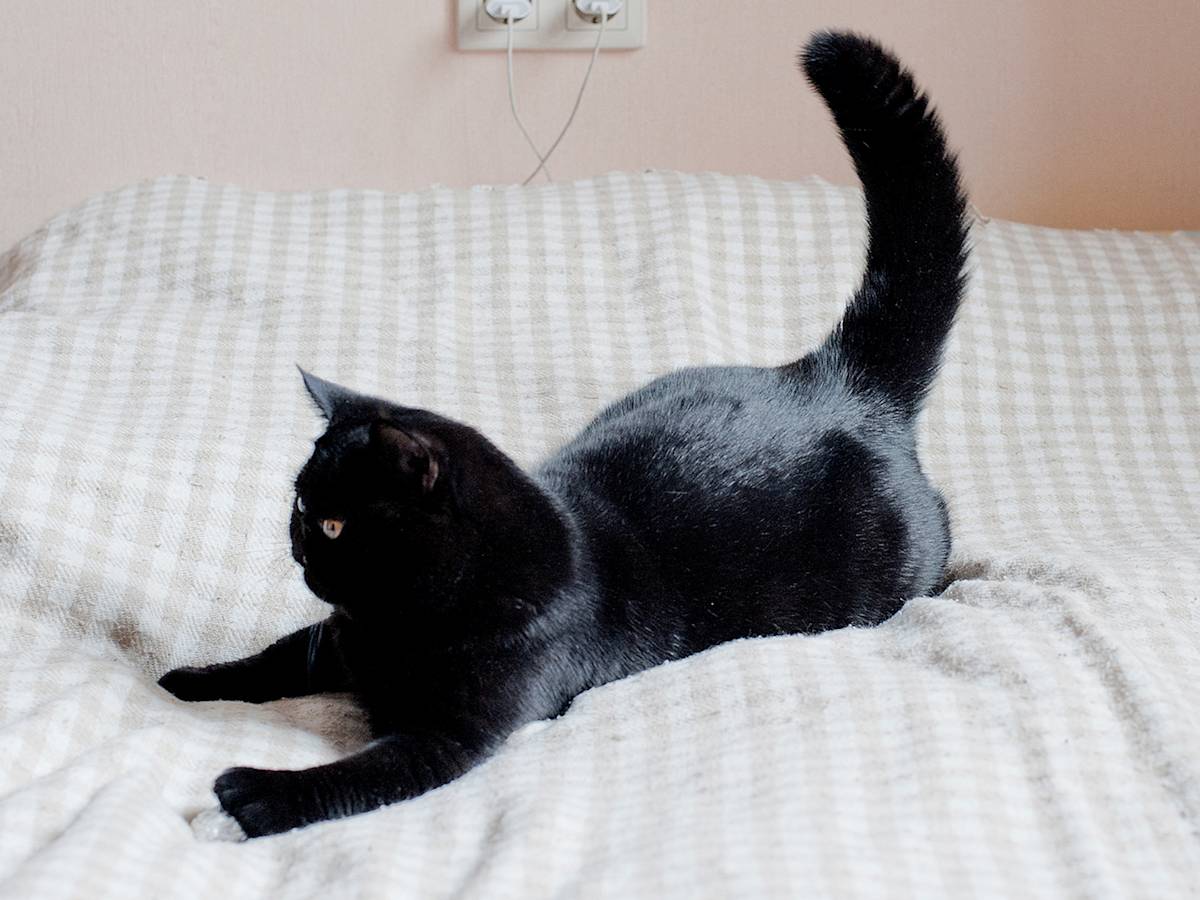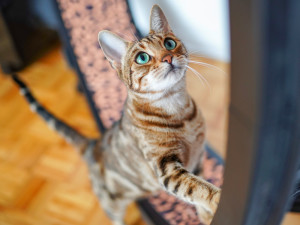Your Cat’s Erratic Zoomies — Explained
Fast, furious, and officially normal — according to a cat behaviorist.

Share Article
Your cat seems to be training for a role as a stunt double, and you’re starting to think you shouldn’t have let them watch Jackass Forever with you. The little daredevil leaps from the top of the refrigerator onto the counter, teeters on the edge for a second, then races up the stairs, and down again, before attempting the grand finale — a gravity-defying leap in pursuit of the spinning ceiling fan. Before you know it, the circuit has ended as quickly as it began.
The scientific name for these bursts of hyperactivity is Frenetic Random Activity Periods — but they are known by cat parents everywhere as “zoomies.” “Zoomies are a natural behavior,” Dr. Niwako Ogata, director of the Purdue Animal Behavior Clinic at Purdue University, says. “But your schedule might be reinforcing the pattern.” Your cat spends up to 16 hours a day sleeping. After such uninterrupted rest (must be nice), they need to stretch their legs — and quickly — so they can get back to their cat nap.
Zoomies tend to happen on a predictable schedule, either first thing in the morning or late at night. Dr. Ogata believes there are usually things happening in the environment to trigger the behavior. For instance, mice are most active between sunset and sunrise. Your cat might hear movement and their natural hunting instinct will kick in, causing them to tear around the house in search of prey. Or, your cat could just be eager to interact with you after a long day of napping and working, respectively. You can at least tell yourself that’s why.
After a day of Zoom meetings, the last thing you want to deal with are zoomies. We get it. Dr. Ogata suggests scheduling regular playtime that coincides with these bursts of energy. Laser pointers and other interactive toys will help burn off steam while letting you bond with your cat. Indulging in your cat’s behavior (on your terms, sort of) also lowers the odds that your cat will act up again after you settle in for the night.

While cat zoomies are seldom a sign that something is wrong, sudden changes could be a sign of trouble — like an active cat that loses interest in using the living room as an obstacle course or, on the other hand, a lazy kitty that abruptly goes off the wall. If these changes are accompanied by other symptoms, such as a lack of appetite or more meowing than usual, Dr. Ogata suggests a vet visit. Otherwise, just don’t leave anything breakable in your cat’s path when the witching hour commences.

Jodi Helmer
Jodi Helmer is a North Carolina-based freelance writer who shares her home with an embarrassing number of rescue dogs and relies on four feral cats to patrol the barn. When she isn’t refilling food and water dishes, Jodi writes about animals for Scientific American, Sierra, WebMD, AKC Family Dog, Living the Country Life, and Out Here.
Related articles
![cat staring at person on table]()
Why Does My Cat Stare at Me?
...Is it something you said?
![Bengal cat running on indoor wheel]()
11 High-Tech Toys Your Cat Will Go Wild For
Stoke your little lion’s hunting instinct with these electronic cat toys.
![Woman with tight curly black hair wearing a tan linen shirt and jeans sitting on a cream couch petting her tan and white cat who is laying on a blanket on the couch int he living room]()
How to Keep Your Cat From Having a Full Freakout When You’re Away
Cristin Tamburo, a.k.a. The Cat Counselor, gives essential advice on keeping your cats chill while you’re away.





